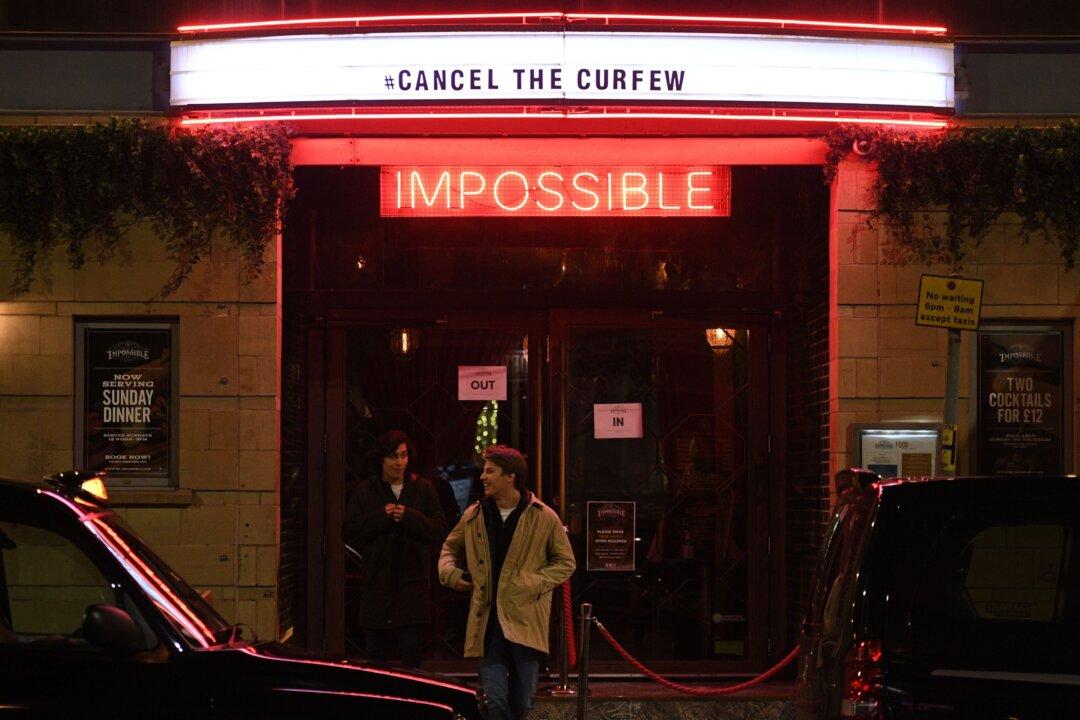Christopher Snowdon, head of lifestyle economics from the International Energy Agency (IEA), published an article on Monday slamming the UK government for targeting hospitality businesses “based on the flimsiest of evidence.”
The government published a policy paper on Friday, laying out evidence it said supports the decision to keep pubs shut and impose a curfew on restaurants for 99 percent of the English population in the new three-tiered CCP virus restrictions system.





